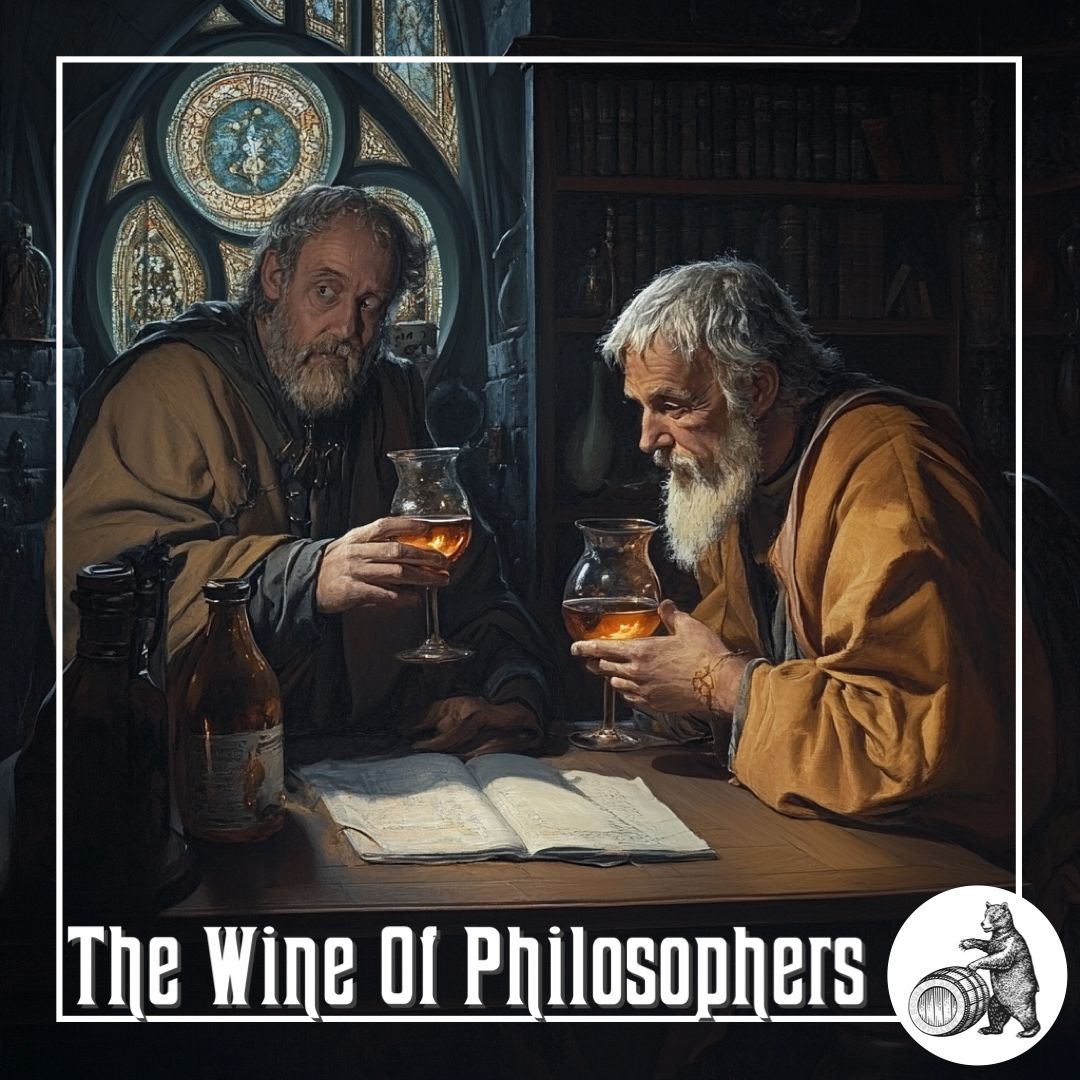The Wine Of Philosophers
Alchemy, Transformation, and Timeless Symbolism
The concept of the “wine of philosophers” is steeped in the rich traditions of alchemy, mysticism, and the pursuit of wisdom. Far beyond its literal meaning as a drink, it symbolized the transformative journey of matter and spirit, a central theme in the philosophical and scientific explorations of ancient, medieval, and Renaissance thinkers. From the early experiments of Arabic scholars to the philosophical debates of European intellectuals, this idea continues to inspire curiosity and reflection.
The Alchemical Origins: Early Distillation and Symbolism
The story begins in the 8th and 9th centuries with Jabir ibn Hayyan (Geber), a scholar and chemist in the Abbasid Caliphate. Jabir’s pioneering work on distillation techniques advanced the understanding of purification, laying the groundwork for alchemical practices. Distilling wine into spirits became a practical and symbolic act, embodying the transformation of base matter into something more refined—an earthly reflection of the alchemist’s quest for spiritual enlightenment.
The “wine of philosophers” in this context was both a literal substance and an allegory for achieving the philosopher’s stone, the legendary material believed to transmute base metals into gold and grant eternal life.
Medieval Medicine and Ramon Llull
The idea of the “wine of philosophers” traveled westward during the medieval period, where it evolved in the hands of European scholars. In the 13th century, Ramon Llull, a Majorcan polymath, expanded on the distillation of wine. He described a potent, purified spirit he called aqua ardens (“burning water”), a precursor to the modern concept of distilled spirits. Llull recognized its preservative and medicinal properties, aligning with the idea of wine as a transformative agent both physically and spiritually.
Arnald of Villanova: A Physician’s Perspective
Arnald of Villanova (1235–1311), a Catalan physician, theologian, and scholar, furthered the study of distilled wine. While often associated with alchemical practices, Arnald was not an alchemist but a medical professional who viewed wine and its distilled forms through the lens of health and healing.
Villanova believed in the medicinal potential of aqua vitae (“water of life“), advocating its use to preserve health and prolong life. He wrote extensively on the preparation and therapeutic uses of distilled wine, framing it as a divine gift rather than a mystical alchemical substance. For Villanova, the “wine of philosophers” was not a metaphor for spiritual transmutation but a practical and medicinal tool to sustain the body, reflecting the evolving relationship between alchemy, science, and medicine during the Middle Ages.
Renaissance Revival: From Alchemy to Science
The Renaissance (14th–17th centuries) marked a period of intellectual and scientific revival, where the “wine of philosophers” took on new significance. Figures like Paracelsus (1493–1541) reimagined distilled wine as part of the broader alchemical search for the philosopher’s stone. Paracelsus blended the spiritual and the practical, believing that the essence of wine could be distilled to its purest form, both materially and spiritually, to achieve enlightenment.
Simultaneously, monasteries and scholars refined distillation techniques to create high-quality spirits, often infused with medicinal herbs. These distilled products, regarded as both curative and symbolic, kept alive the philosophical ideals of transformation and refinement.
The Symbolism of Wine in Alchemy and Beyond
Throughout history, wine has carried symbolic meanings of life, divinity, and transformation. In alchemical traditions, wine represented the soul’s journey: fermentation symbolized growth, distillation represented purification, and the final essence reflected enlightenment. This imagery resonated deeply in spiritual traditions, from ancient Greek Bacchic rituals to the Christian Eucharist, where wine served as a bridge between the earthly and the divine.
For philosophers and alchemists, the “wine of philosophers” was an allegory for their ultimate goal: the unification of material and spiritual realms.
A Timeless Legacy
The “wine of philosophers” continues to inspire, reflecting the human desire for transformation and understanding. From the groundbreaking experiments of Jabir ibn Hayyan to the medical treatises of Arnald of Villanova, this concept evolved as a symbol of the intertwined pursuits of science, spirituality, and health.
Modern distillers, winemakers, and thinkers often evoke this ancient idea, celebrating the art of transformation and the journey toward refinement. Whether viewed as a literal elixir or a metaphor for enlightenment, the wine of philosophers remains a timeless reminder of humanity’s quest for wisdom, balance, and transcendence.
The Distilling Culture
BLOG
Embark on a global journey, and you’ll find that cultures possess tales that harken back to their ancient beginnings of distillation, brewing, and winemaking.
info@houseofapplejay.com
67 Fowler St, Bldg B, East Ellijay, GA 30540

